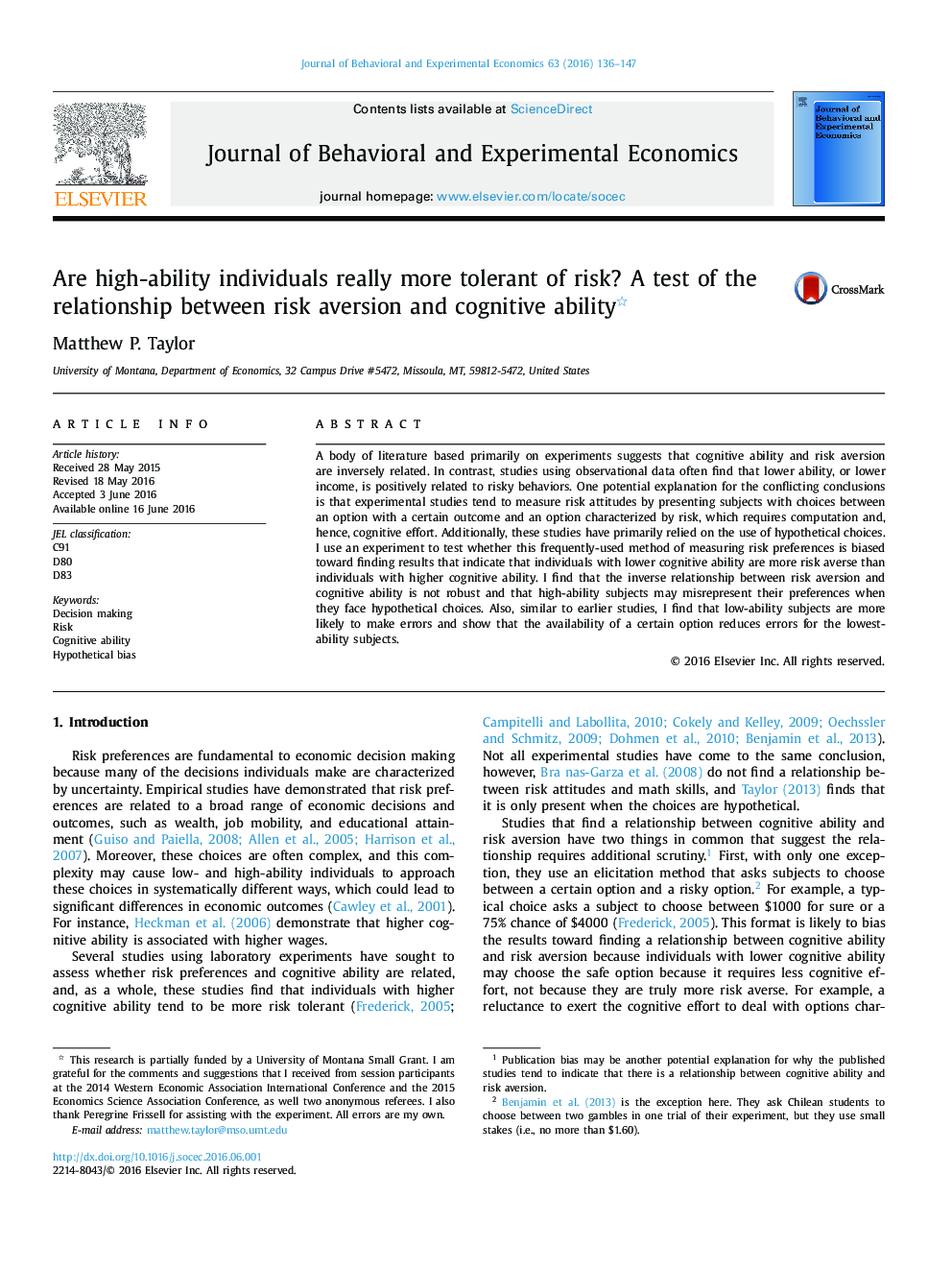| کد مقاله | کد نشریه | سال انتشار | مقاله انگلیسی | نسخه تمام متن |
|---|---|---|---|---|
| 881793 | 1471551 | 2016 | 12 صفحه PDF | دانلود رایگان |
• I use an experiment to test whether the inverse relationship between cognitive ability and risk aversion is an artifact of a frequently-used experimental design.
• I find that the relationship between cognitive ability and risk aversion is not robust to the use of real monetary incentives and choices with options that require equal effort to be evaluated.
• The availability of a certain option reduces the likelihood of errors by the lowestability subjects.
• High-ability subjects appear to misrepresent their preferences so that they appear more risk tolerant when they make hypothetical choices and the safer option is certain.
• I find some evidence to suggest that subjects with knowledge of expected value tend to be more risk tolerant.
A body of literature based primarily on experiments suggests that cognitive ability and risk aversion are inversely related. In contrast, studies using observational data often find that lower ability, or lower income, is positively related to risky behaviors. One potential explanation for the conflicting conclusions is that experimental studies tend to measure risk attitudes by presenting subjects with choices between an option with a certain outcome and an option characterized by risk, which requires computation and, hence, cognitive effort. Additionally, these studies have primarily relied on the use of hypothetical choices. I use an experiment to test whether this frequently-used method of measuring risk preferences is biased toward finding results that indicate that individuals with lower cognitive ability are more risk averse than individuals with higher cognitive ability. I find that the inverse relationship between risk aversion and cognitive ability is not robust and that high-ability subjects may misrepresent their preferences when they face hypothetical choices. Also, similar to earlier studies, I find that low-ability subjects are more likely to make errors and show that the availability of a certain option reduces errors for the lowest-ability subjects.
Journal: Journal of Behavioral and Experimental Economics - Volume 63, August 2016, Pages 136–147
